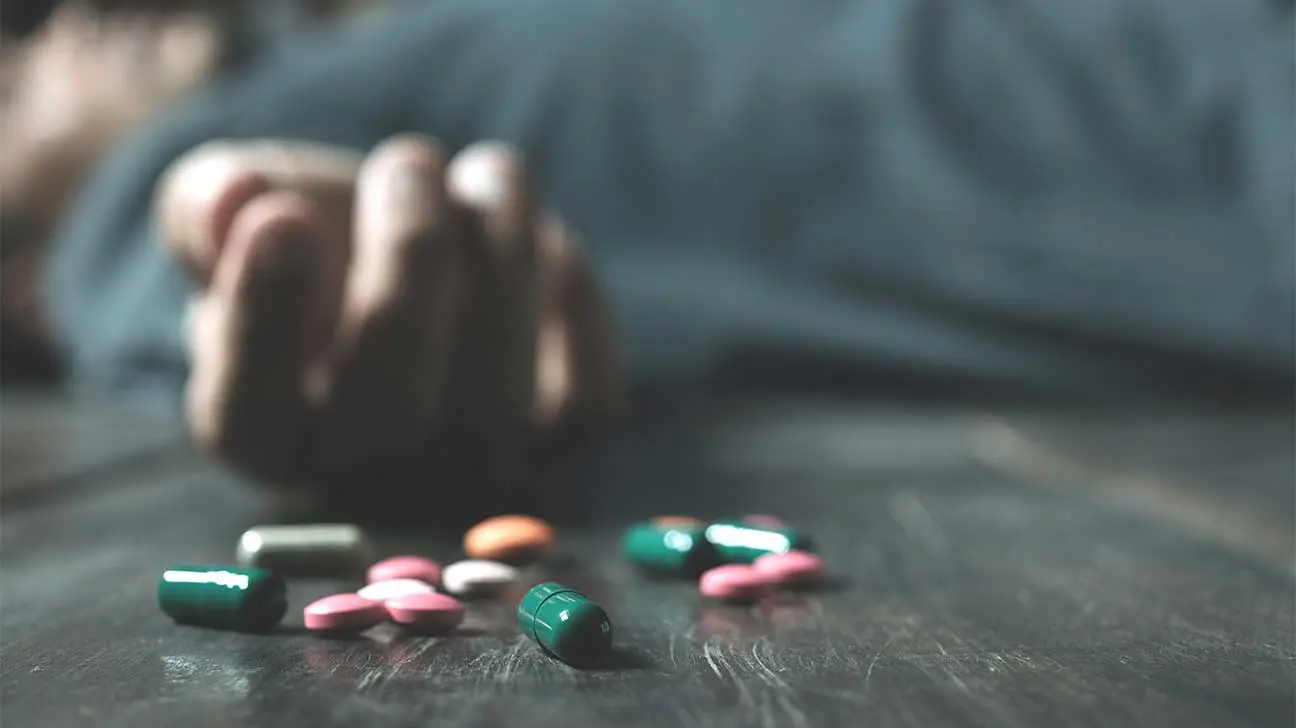
Klonopin (clonazepam) is a prescription sedative and central nervous system depressant. Taking an extremely high dose of Klonopin, or mixing it with other depressants can be fatal.
If someone has taken a lethal dose of Klonopin, call 911 or seek emergency medical attention right away. Klonopin is rarely fatal on its own, but can be deadly mixed with drugs.
Learn more about the lethal dose of commonly abused drugs.
How A Lethal Dose Of Klonopin Is Determined
Clonazepam is rarely associated with fatality when taken on its own.
Even instances of taking very high doses of Klonopin—more than 20 milligrams (mg), or 45 tablets—have resulted in patient recovery with prompt medical treatment.
The recommended daily dose of Klonopin is no more than 1.5 mg. In rats, lethal doses of Klonopin have been recorded at 4,000 mg/kg of weight.
Mixing Clonazepam And Opioids Can Be Fatal
While rarely fatal on its own, Klonopin can be deadly in combination with other depressants, including alcohol and opioids.
According to the National Institute on Drug Abuse (NIDA), almost 14 percent of opioid overdose deaths in 2021 involved benzodiazepines like Klonopin.
People who are prescribed both types of drugs should not take these drugs in any way other than the way prescribed by a doctor. This can lead to respiratory depression and death.
Factors That Can Affect The Lethal Dose Of Klonopin
The lethal dose of Klonopin can vary according to a range of personal and biological factors.
Factors that can affect the lethal dosage include:
- age
- drug tolerance
- use of multiple drugs
- method of use
- body composition
- drug metabolism
- liver function
- kidney function
Taking Klonopin with other depressants is the number one predictor of serious Klonopin overdose. Together, multiple depressants can overwhelm the body much more quickly.
Recognizing The Signs Of A Klonopin Overdose
Overdose involving Klonopin or Klonopin with other drugs can be treatable with prompt medical attention. Knowing the signs of a drug overdose can be life-saving.
Signs and symptoms of Klonopin overdose include:
- extreme drowsiness
- very slow or shallow breathing
- difficulty breathing
- confusion
- slurred speech
- dilated pupils
- very fast or slow pulse
- impaired balance
- loss of consciousness
If someone has collapsed, stopped breathing, or is unresponsive after taking a high dose of Klonopin, call 911 right away.
Find Treatment For Substance Abuse Today
Are you exploring addiction treatment options for substance abuse? Whether it is for yourself or someone you love, call us today for help getting started on the recovery journey.
Addiction Resource aims to provide only the most current, accurate information in regards to addiction and addiction treatment, which means we only reference the most credible sources available.
These include peer-reviewed journals, government entities and academic institutions, and leaders in addiction healthcare and advocacy. Learn more about how we safeguard our content by viewing our editorial policy.
- Research Journal of Pharmaceutical, Biological, and Chemical Sciences—Acute Clonazepam Poisoning: Seeking Death or Attention?
https://www.researchgate.net/publication/283724159_Acute_Clonazepam_Poisoning_Seeking_Death_Or_Attention - U.S. National Institute on Drug Abuse (NIDA)—Benzodiazepines and Opioids
https://www.drugabuse.gov/drug-topics/opioids/benzodiazepines-opioids - U.S. National Library of Medicine: MedlinePlus—Clonazepam
https://medlineplus.gov/druginfo/meds/a682279.html - U.S. National Library of Medicine: NCBI Bookshelf—Benzodiazepine Toxicity
https://www.ncbi.nlm.nih.gov/books/NBK482238/ - U.S. National Library of Medicine: PubChem—Clonazepam: Compound Summary
https://pubchem.ncbi.nlm.nih.gov/compound/Clonazepam-d4


